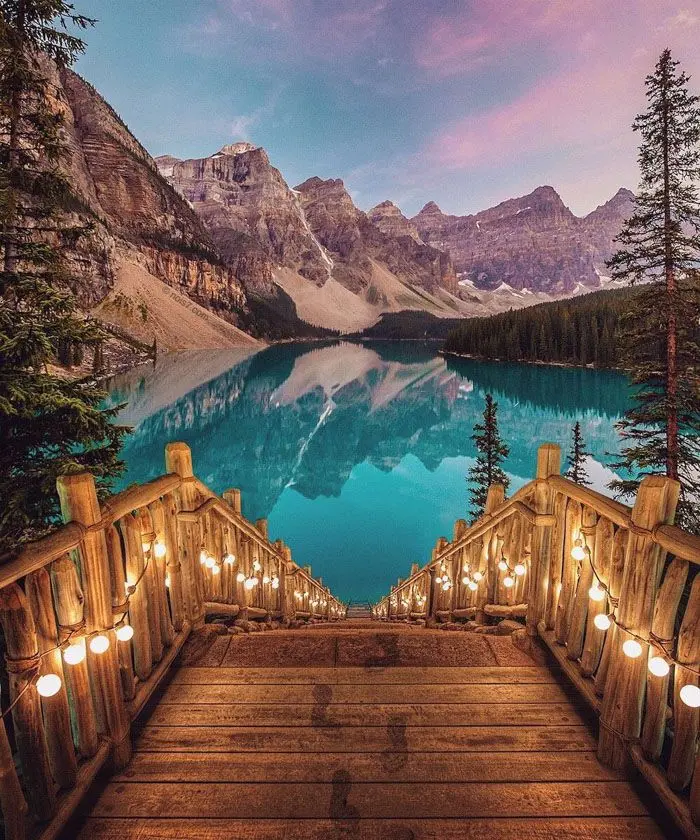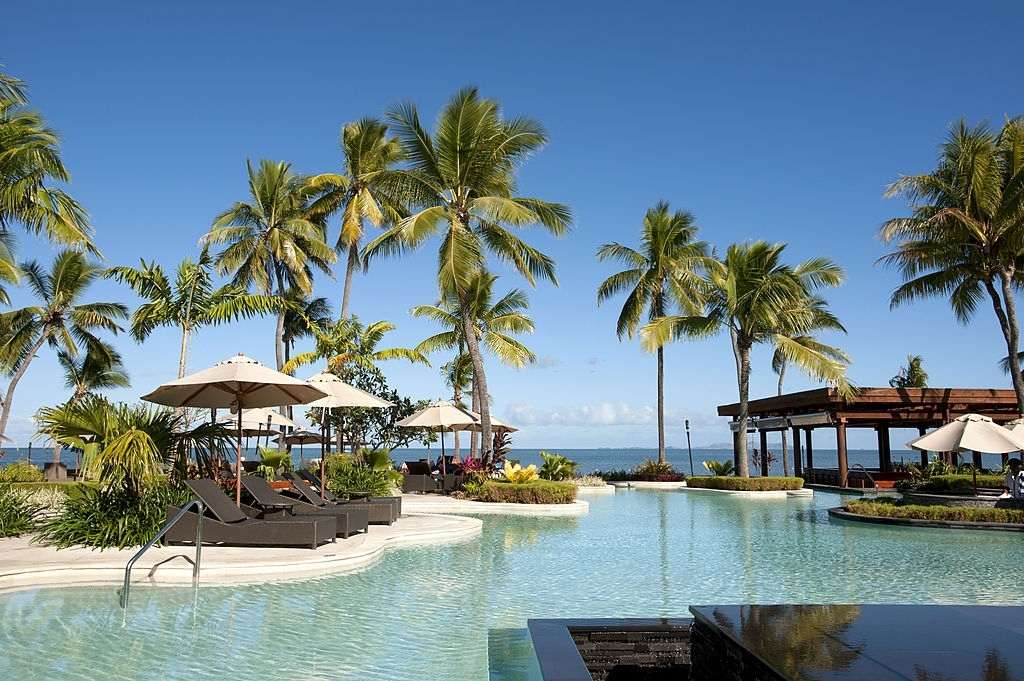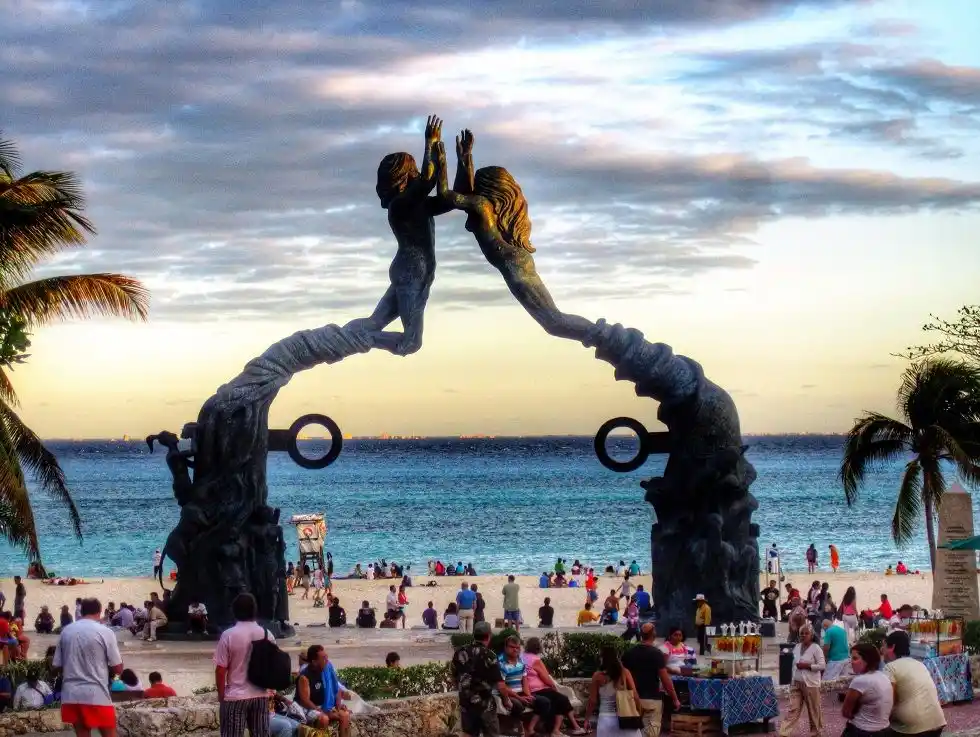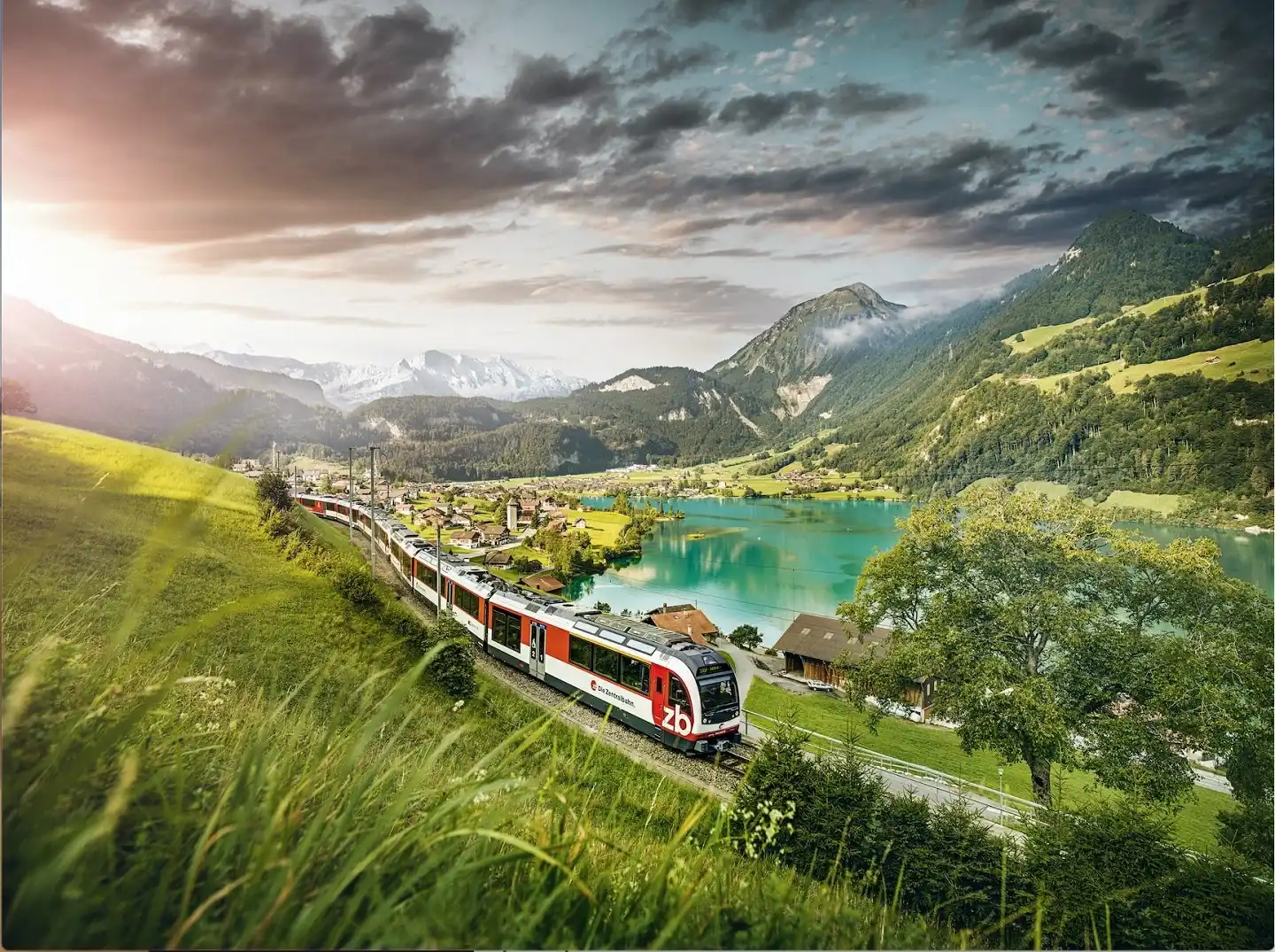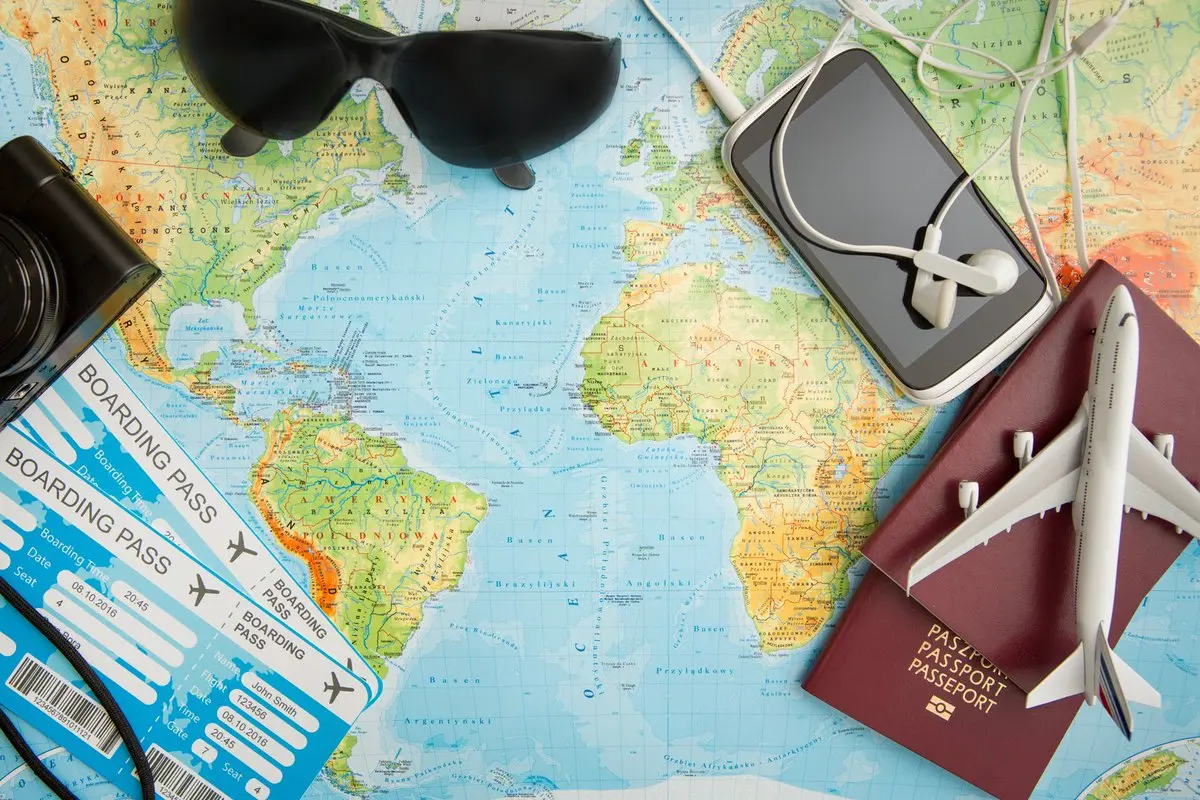When it comes to RV travel, the excitement of hitting the open road and exploring new places is something every traveler cherishes. But amidst all the fun and adventure, ensuring the safety and health of your family should be your top priority. One crucial aspect that should not be overlooked is the quality of water you are consuming while on your road trip. Access to clean, safe, and potable water is essential for maintaining good health and making your travel experience worry-free.
Drinking contaminated or impure water can have serious consequences, potentially ruining your trip and causing health issues. To ensure the safety of your drinking water, using a high-quality RV water filter like Glacier Fresh RV Water Filters is highly recommended. These filters can help you enjoy your adventures while keeping you and your loved ones hydrated and safe
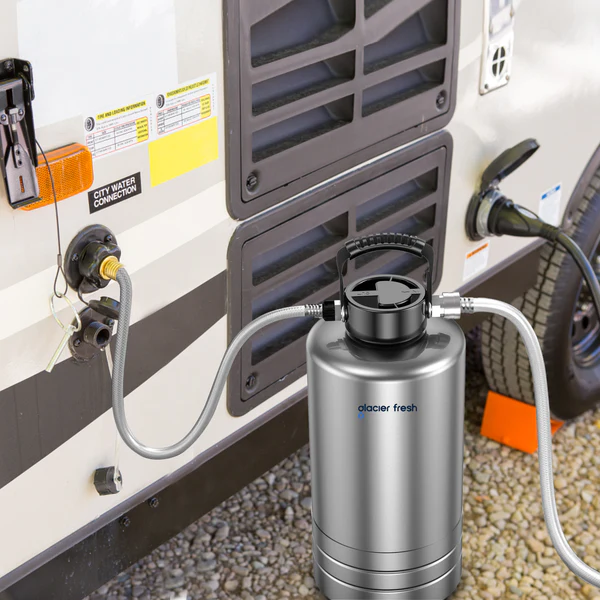
This article will explore the importance of water safety while traveling in an RV, common contaminants found in RV water, the benefits of using water filters, and a detailed explanation of various types of RV water filters. By the end of this article, you will understand why investing in an RV water filter is a smart decision for ensuring a healthy and enjoyable journey.
Why Water Safety Is Crucial for RV Travelers
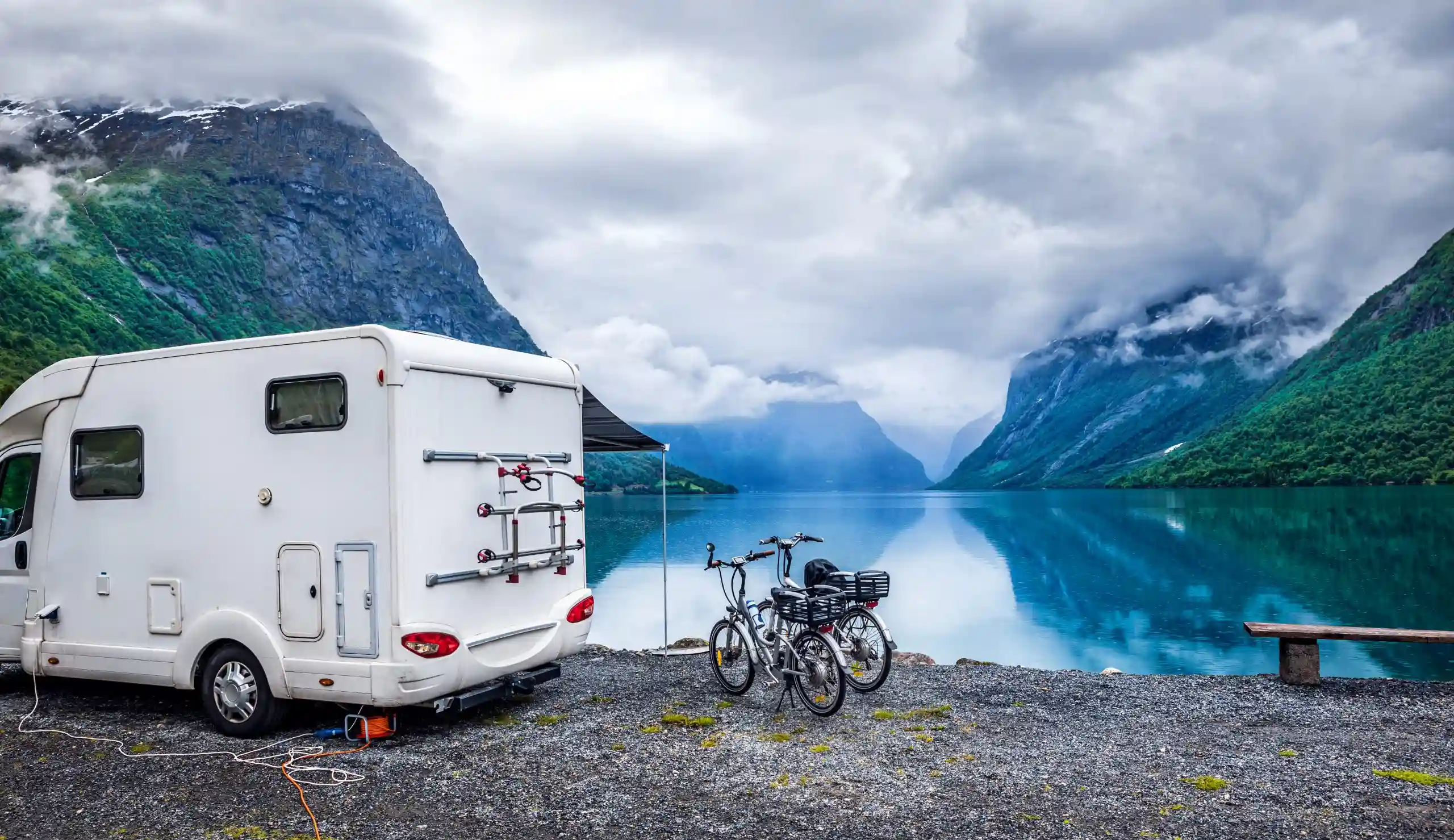
Water safety is an often overlooked aspect of RV travel, yet it is one of the most important factors to consider when embarking on a road trip. Water is necessary for a variety of purposes—drinking, cooking, cleaning, and personal hygiene. However, the water available at different campsites or RV parks may not always meet health standards, which can lead to serious health problems if consumed.
Health Risks from Contaminated Water
When traveling in an RV, you might come across various water sources such as public taps, lakes, or streams. While some sources might seem safe, they can harbor harmful bacteria, viruses, and parasites. Without a proper filtration system, you could unknowingly consume water that contains these dangerous microorganisms, leading to severe illness or even life-threatening diseases.
Common health issues caused by contaminated water include:
- Gastrointestinal Infections: Contaminated water can cause symptoms like nausea, vomiting, and diarrhea, often caused by harmful bacteria like E. coli or Salmonella.
- Respiratory Infections: Legionella, a bacteria found in water, can cause Legionnaires’ disease, a severe form of pneumonia.
- Digestive Issues: Parasites like Giardia and Cryptosporidium can lead to prolonged digestive distress and dehydration.
By investing in a reliable RV water filter, you ensure the water you consume is free from these harmful contaminants, making your journey safer and more enjoyable.
Understanding the Contaminants in RV Water

Contaminants in RV water come in various forms, each posing different health risks. Whether the water is sourced from a campground, public tap, or a natural body of water, it is essential to understand the potential hazards present. Let’s break down some of the most common contaminants found in RV water:
Bacteria
Harmful bacteria, including E. coli, Salmonella, and Legionella, can thrive in untreated water. These microorganisms are known to cause severe infections if ingested, leading to symptoms such as fever, abdominal pain, and diarrhea. E. coli, in particular, is a major concern as it can lead to food poisoning and life-threatening infections.
Viruses
Norovirus and Hepatitis A are two common waterborne viruses that can cause gastrointestinal issues and liver inflammation. These viruses can survive in untreated water and can cause widespread illness if consumed.
Parasites
Parasites like Giardia and Cryptosporidium are often present in untreated water, especially from natural sources. These organisms can lead to digestive problems, including diarrhea and dehydration.
Chemicals
Chemicals like lead, arsenic, and nitrates can be found in water sources due to industrial pollution, agricultural runoff, or old plumbing. Long-term exposure to these chemicals can have detrimental effects on health, leading to developmental issues, organ damage, and other health complications.
By understanding these contaminants and their risks, RV owners can make informed decisions to protect themselves and their families from waterborne diseases.
Benefits of Using RV Water Filters
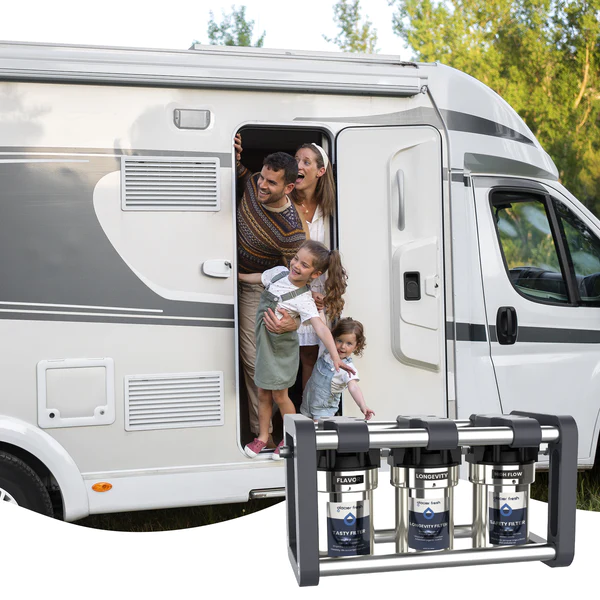
When you invest in an RV water filter, you are not only ensuring the quality of the water you consume but also enhancing the overall travel experience. Let’s take a closer look at the various benefits of using an RV water filter:
1. Improved Water Quality
One of the primary reasons to use an RV water filter is to improve the quality of the water. Filters remove impurities such as chlorine, sediment, heavy metals, and odors, providing you with fresh-tasting and clean water that’s safe to drink.
2. Removal of Harmful Pathogens
Glacier Fresh RV Water Filters are designed to remove harmful bacteria, viruses, and parasites from your water supply. This ensures that you are not exposed to dangerous microorganisms that could cause illnesses such as food poisoning, respiratory infections, or digestive distress.
3. Chemical Filtration
Many RV water sources contain chemicals such as fluoride, chlorine, and pesticides. These chemicals not only affect the taste and smell of the water but also pose long-term health risks. High-quality filters like the Granular Activated Carbon (GAC) and Kinetic Degradation Flux (KDF) used in Glacier Fresh RV Water Filters can effectively reduce these chemicals, providing you with safer water for drinking and cooking.
4. Enhanced Taste and Smell
Filters significantly improve the taste and odor of the water, making it more palatable. Chlorine, a common disinfectant used in water treatment, is often responsible for the unpleasant taste and smell. Carbon filters remove chlorine and other chemicals, leaving you with refreshing, great-tasting water.
5. Peace of Mind While Traveling
Having clean and safe water is essential for a stress-free RV trip. With a reliable RV water filter, you can confidently drink, cook, and bathe without worrying about waterborne diseases or contamination. This peace of mind allows you to focus on enjoying the adventure.
Types of RV Water Filters
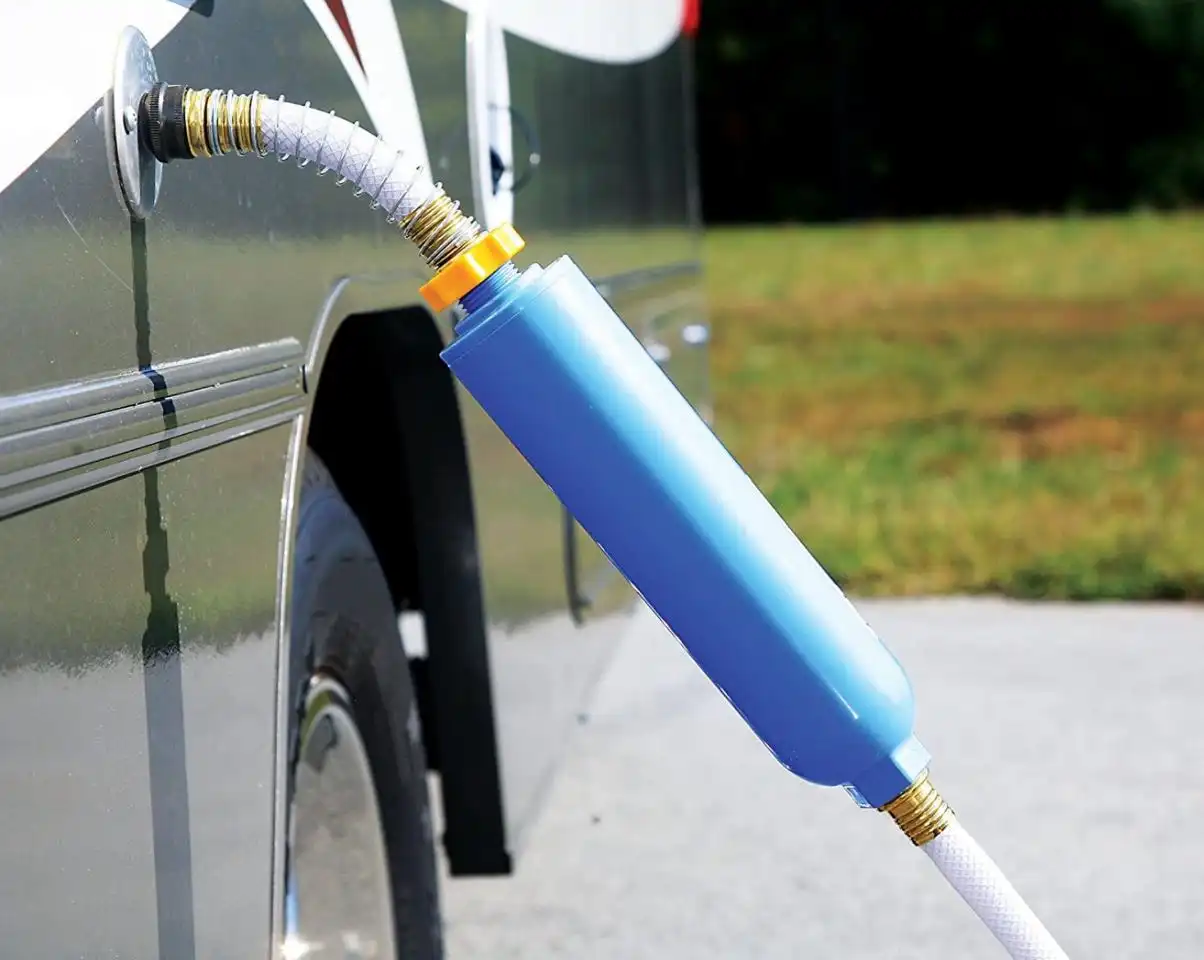
Selecting the right water filter for your RV depends on various factors, including the type of water source, the contaminants present, and your specific needs. Here’s an overview of the most popular types of RV water filters:
1. Inline Filters
Inline filters are easy to install and attach directly to your RV’s water system. They are compact, efficient, and affordable. Inline filters work well for removing common contaminants such as chlorine, sediment, and odors.
2. Carbon Filters
Carbon filters are excellent for removing chlorine, chemicals, and bad odors. They also improve the taste of water by absorbing impurities that affect flavor. Carbon filters come in both granular and block forms and can be used for both drinking water and general water supply.
3. UV Filters
Ultraviolet (UV) filters use UV light to kill bacteria, viruses, and other microorganisms in the water. These filters are effective in disinfecting water, especially if you’re concerned about pathogens in your water supply.
4. Reverse Osmosis Filters
Reverse osmosis (RO) filters use a semi-permeable membrane to remove a wide range of contaminants from the water. RO filters are highly effective at eliminating bacteria, chemicals, and heavy metals, providing extremely clean and pure water.
5. Ceramic Filters
Ceramic filters are effective at removing bacteria and sediment from the water. They work by physically filtering out impurities through a porous ceramic material. These filters are often used in combination with other types for better filtration.
Maintaining and Replacing RV Water Filters
Proper maintenance of your RV water filter ensures it works efficiently throughout your journey. Here are some tips for keeping your filter in top condition:
1. Regular Cleaning
Clean your water filter periodically to remove accumulated debris, dust, and impurities. Regular cleaning ensures that the filter maintains its effectiveness and continues to provide clean water.
2. Timely Replacement
Replace your water filter every 3-6 months, or as recommended by the manufacturer. Signs that it’s time to replace the filter include reduced water flow, strange odors, or visible particles in the water.
3. Sanitize the Water System
In addition to cleaning the filter, it’s important to sanitize the entire RV water system. This will help prevent the buildup of harmful bacteria and ensure that the water remains safe to consume.
FAQs About RV Water Filters
1. How often should I replace my RV water filter?
It’s recommended to replace your RV water filter every 3-6 months, or sooner if you notice a decrease in water flow or quality.
2. What contaminants do RV water filters remove?
RV water filters can remove bacteria, viruses, parasites, sediment, and harmful chemicals like chlorine, fluoride, lead, and arsenic.
3. Can I drink water directly from the RV water filter?
While filters improve water quality, it’s always a good idea to use a separate drinking water filter for added safety, especially if you’re concerned about contaminants like heavy metals or certain chemicals.
4. How do I know if my RV water filter is working?
Check for signs such as reduced water flow, unusual tastes or odors, or visible particles. These indicate the need for cleaning or replacement.
5. Are RV water filters easy to install?
Yes, most RV water filters, especially inline filters, are easy to install and come with clear instructions for a hassle-free setup.
Conclusion
In conclusion, ensuring that your water is clean and safe is a fundamental part of enjoying your RV journey. By using high-quality water filters like Glacier Fresh RV Water Filters, you can eliminate harmful contaminants from your water and ensure that you and your family stay hydrated and healthy throughout the trip. Investing in a good RV water filter is not only a health investment but also a practical one that enhances your overall travel experience.
Don’t compromise when it comes to your health and water quality. With the right RV water filter, you can relax, enjoy your adventure, and focus on creating lasting memories without worrying about the safety of your drinking water.

